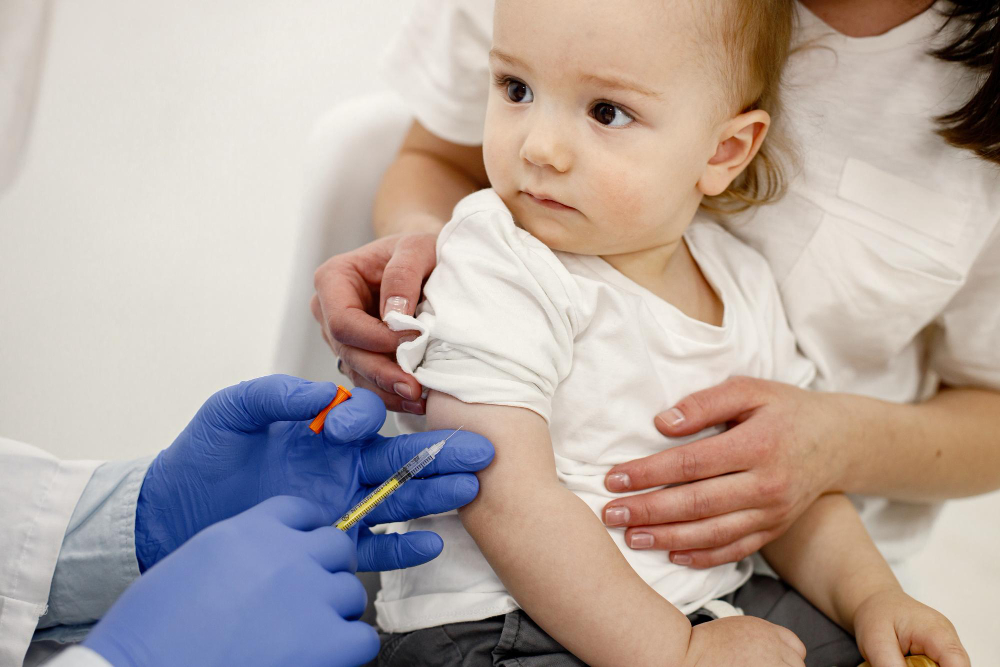What Are Childhood Vaccinations?
Vaccinations in children are shots that help protect kids from serious diseases. These vaccines teach the body to fight germs before they can cause illness. For example, vaccines can prevent diseases like measles, mumps, and polio. Most vaccines are given as shots, but some may be drops or sprays. In many countries, including the US, doctors follow a set childhood vaccination schedule to keep kids safe. Because vaccines work best when given at the right time, it is important to follow this schedule closely.
Why Are Vaccinations Important for Children?
Vaccines protect children from diseases that can cause lasting harm. For instance, some illnesses can lead to hospital stays or even death. However, with vaccines, many of these diseases have become rare. Not only do vaccines keep your child safe, but they also protect others. When most children get vaccinated, diseases have less chance to spread. This is called herd immunity. As a result, even babies who are too young for some shots are safer. According to the CDC and WHO, vaccines save millions of lives every year.
Recommended Vaccination Schedule for Children
Doctors follow a set plan called the childhood vaccination schedule. This schedule tells you when your child should get each vaccine. In the US, the CDC updates this schedule every year. Here are some key vaccines and when children usually get them:
Because schedules may change, always check with your doctor for the latest advice. Some vaccines may be given as combination shots to reduce the number of visits.
Common Myths and Facts About Vaccines
Many parents have questions about immunization for children. Let’s look at some common myths and the real facts:
Because of these facts, experts recommend following the full vaccine schedule.
Vaccine Safety and Side Effects
Vaccine safety for kids is a top priority for doctors and health groups. Before approval, vaccines go through many tests. After approval, experts keep checking for safety. Most side effects are mild and go away quickly. For example, your child may have a sore arm, mild fever, or fussiness. Serious side effects are very rare. However, if you notice anything unusual, contact your doctor right away. The CDC and WHO both agree that the benefits of vaccines far outweigh the risks.
How to Prepare Your Child for Vaccinations
Getting a shot can make some children nervous. However, there are ways to help your child feel better:
Because preparation helps, your child may feel less scared and recover faster.
Tips for Parents: Keeping Vaccination Records
It is important to keep a record of your child’s vaccines. This helps you and your doctor know which shots are done and which are due. Here are some tips:
Because records are important, always update them after each vaccine.
Frequently Asked Questions
In summary, vaccinations in children are safe, effective, and vital for good health. Because every child is unique, consult your pediatrician for personalized vaccination advice for your child.

